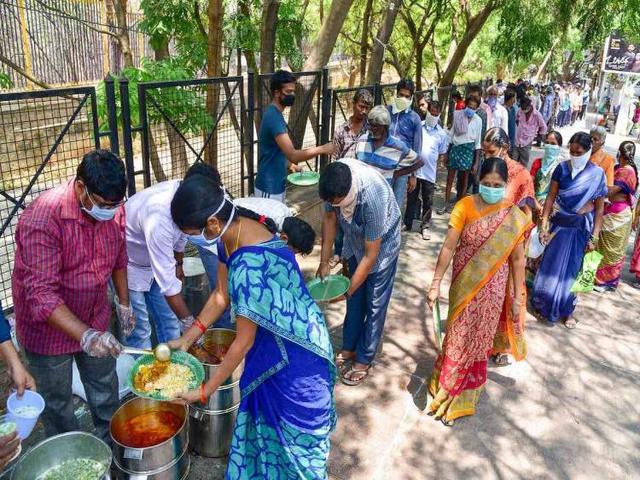
India has ranked 71 among 113 countries in the Global Food Security Index with a score of 57.2. The GFS Index is released by Economist Impact and Corteva Agriscience. The Index is measured on four metrics, Affordability, Availability, Quality & safety and Natorual resources& resilience.
Compared to few of its neighbouring countries, India has a better overall score. Pakistan is ranked at 75th position, Sri Lanka at 77th, Nepal at 79th and Bangladesh at 84th position. However larger countries like China (34) and Russia (23) hold a much better position than India.
Ireland ranked highest with a score of 84 followed by Austria, UK, Finland, Switzerland, Netherlands, Canada, Japan, France and USA.
While India scored 65.7 in availability, the score in affordability is low, at 50.2. In terms of affordability, Pakistan (52.6) and Sri Lanka (62.9) had a better score than India. India’s overall score compared to its 2012 score, improved by 2.7 points.
GFSI shows that hunger (using undernourishment as a measure) and stunting in children are most tied to the quality and safety of food. Populations with diets that lack quality protein and micronutrients, and where access to drinking water is limited, score worse in food security.
The Index also noted that affordability has suffered since 2019 owing to the pandemic and 70 countries slipped in this year’s GFSI rankings because of rising costs. The index observes that over the years, countries like Tanzania, Oman and China have moved up in their rankings because they have been able to tackle affordability, instil safety nets and boost market access. They have also cut back on volatility in production and committed to food security strategies and adaptation policies.
The report states, “To boost food security, approaches such as sustainable intensification seek to look at where innovation and technology can boost yields without taking up more land or causing environmental harm. Key to this approach is recognising that food is about more than just the environment and climate; it also involves social and economic criteria, such as self-sufficiency, equity, profitability, trade, the livelihoods of smallholder farmers and infrastructure.”
The main sources used in the GFSI are The Economist Intelligence Unit, the World Bank Group, the UN Food and Agriculture Organisation (FAO), the World Health Organisation (WHO), the World Trade Organisation (WTO), the OECD, Notre Dame Global Adaptation Initiative (NDGAIN), the World Resources Institute (WRI), Yale Environmental Performance Index (EPI), the US Department of Agriculture (USDA), and national agriculture and health ministries.
The report may be read here:
Related:
GOI rejects Global Health Index after India’s worst ranking ever
UN resolution calls right to clean, healthy and sustainable environment a Human Right
